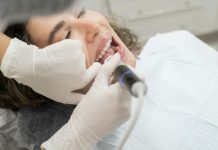
As the world’s population gets older, the risk of dementia and other brain-related conditions becomes a growing concern.
Common lifestyle recommendations to lower dementia risk usually focus on a balanced diet and regular exercise. These not only keep your heart healthy but could also be key to maintaining your brain health.
Scientists have been exploring how exactly our lifestyle choices, like what we eat and how active we are, affect our brain, and a recent study offers some new insights.
Diet, Exercise, and Gut Health
Led by Noah Koblinsky at Baycrest’s Rotman Research Institute, the team looked into existing research that focuses on diet, exercise, and the gut microbiome, which is the community of microorganisms living in our digestive system.
They found that what we eat and how much we move could actually change the makeup of our gut bacteria. And this change could, in turn, impact our brain health and dementia risk.
In one study they reviewed, 1,200 older adults were divided into two groups. One followed a Mediterranean-style diet rich in fiber and healthy fats for a year.
This group showed noticeable improvements in brain function and also had changes in their gut bacteria that are generally considered beneficial for brain health.
In another experiment involving rats, researchers used antibiotics to wipe out the gut bacteria and then gave the rats gut bacteria from other rats who had been on either a healthy or unhealthy diet.
The rats with the “unhealthy” gut bacteria performed worse in memory tests and also showed signs of inflammation in their guts and brains.
Exercise’s Role in Gut and Brain Health
When it comes to exercise, there weren’t as many studies to look at, but the ones that exist are promising. Starting an aerobic exercise routine, for instance, can trigger positive changes in both gut bacteria and brain health.
Despite these exciting findings, more research is needed, particularly in humans and specifically among older adults who are at higher risk for brain-related illnesses.
Most of the current studies have been on rats and focused on single dietary components like fiber instead of overall diet patterns.
What Comes Next?
The researchers are planning to delve deeper into this topic. They aim to run a controlled trial that looks at how diet and exercise affect the gut microbiome and brain health.
The ultimate goal is to refine lifestyle-based strategies to prevent dementia and other brain-related conditions.
By focusing on the relationship between our gut microbiome and brain health, researchers believe that more effective approaches to reduce dementia risk can be developed.
As Dr. Nicole Anderson, one of the study’s authors, puts it, understanding this gut-brain connection could help people “age fearlessly,” with a lower risk of dementia.
If you care about dementia, please read studies about how the Mediterranean diet could protect your brain health, and Vitamin B supplements could help reduce dementia risk.
For more information about brain health, please see recent studies that high-fiber diet could help lower the dementia risk, and these antioxidants could help reduce dementia risk.
The research findings can be found in The Journals of Gerontology: Series A.
Follow us on Twitter for more articles about this topic.
Copyright © 2023 Knowridge Science Report. All rights reserved.



